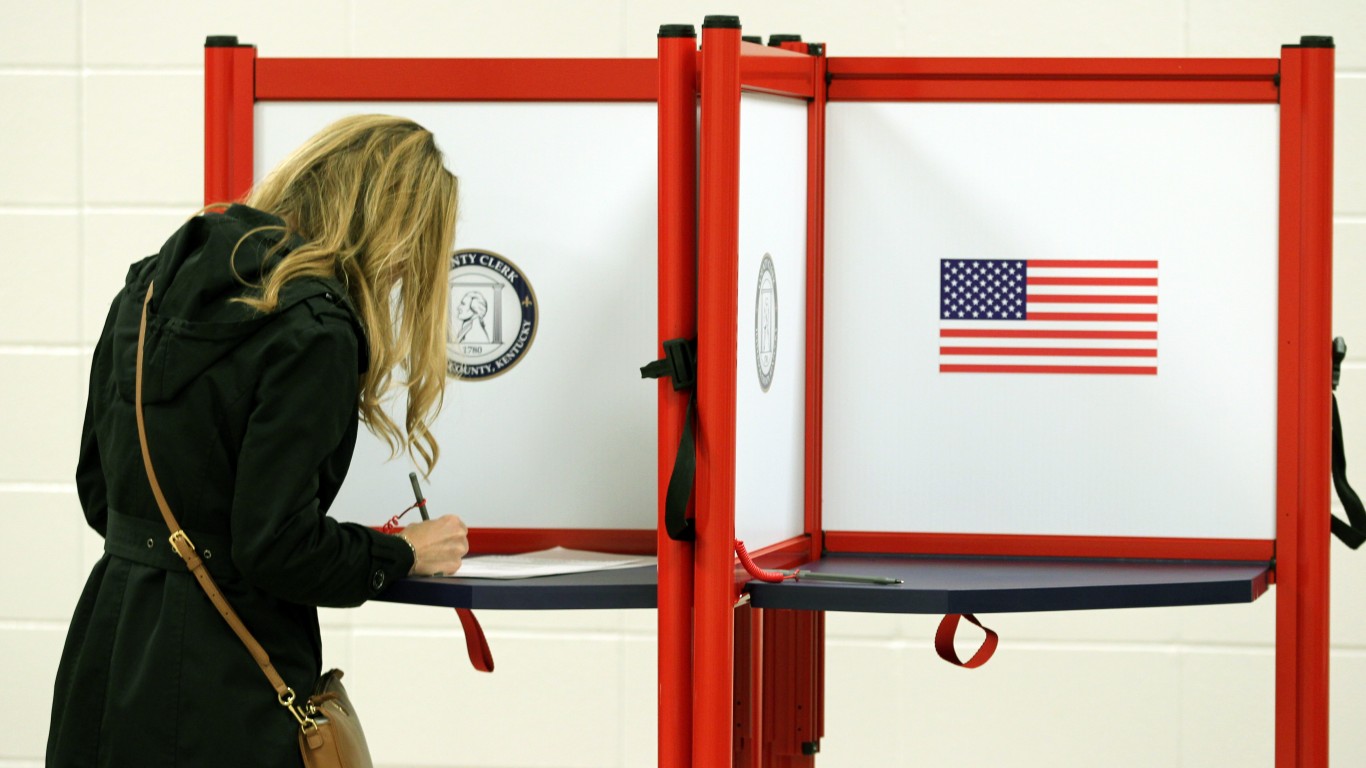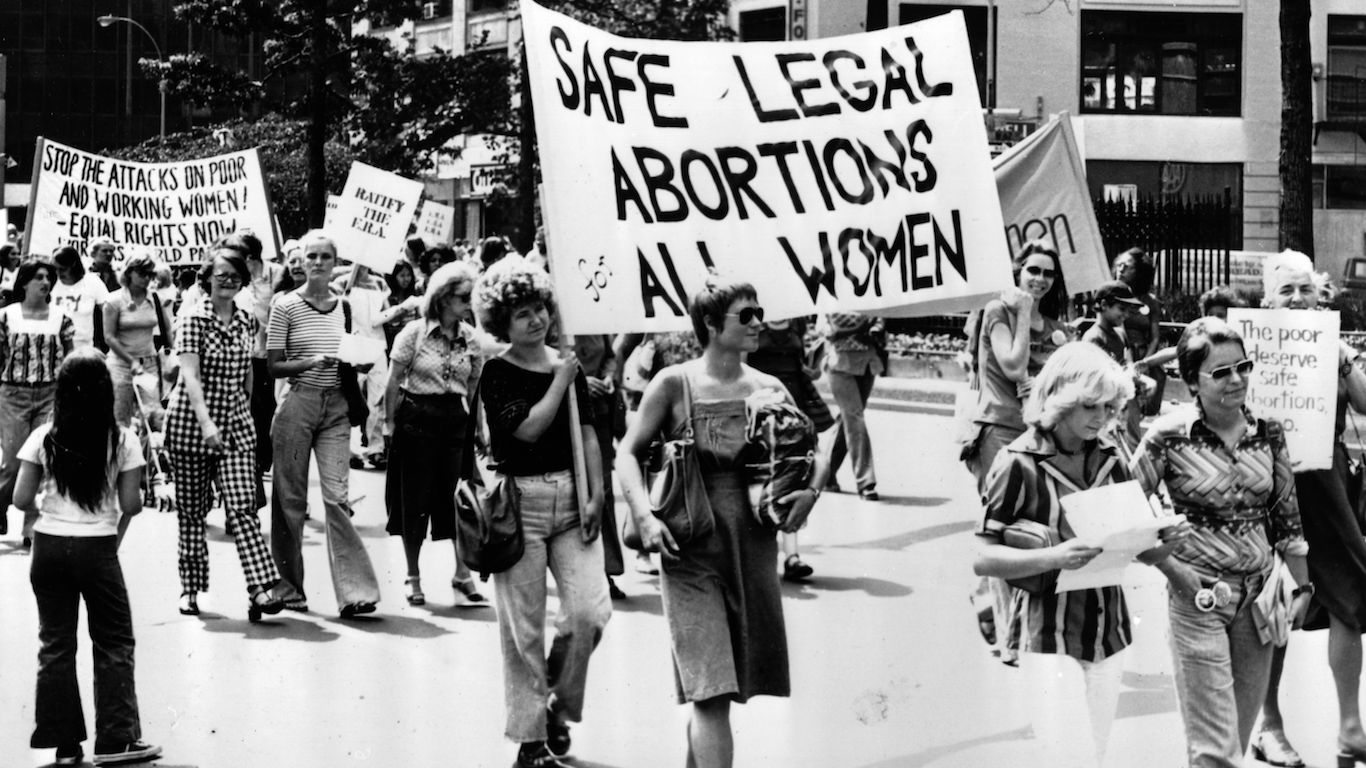
On Friday, June 24, the United States Supreme Court overruled the 1973 Roe v. Wade, eliminating constitutional right to abortion. The question of abortion’s legality will now be left to the states. The decision upheld a Mississippi law that banned abortion after 15 weeks of pregnancy.
About a month ago Oklahoma passed the country’s strictest abortion law, banning the procedure from the stage of “fertilization” and allowing citizens to sue abortion clinics that perform the procedure. Texas enacted a similar law on Sept. 1, 2021. The law, which bans abortions after a fetal heartbeat can be detected, usually around six weeks, went into effect just as the U.S. Supreme Court denied an emergency motion to halt it – a clear indicator of where things are headed.
To determine states where abortion will likely be outlawed, 24/7 Wall St. looked at data from the Guttmacher Institute. Twenty-two states already have laws on the books or constitutional amendments in place that mean they are certain to attempt to ban abortion, while four more are very likely to ban it as soon as possible. Many of these states are also the worst states for women.
As some liberal states rush to pass legislation protecting the right to abortion and protecting providers who perform abortions on residents of states where it may be illegal, other states move to set up restrictive laws that could take effect as soon as Roe is overturned. Thirteen states already have such laws – known as trigger laws – that are poised to ban or limit abortion immediately or shortly after a Supreme Court reversal of Roe v. Wade.
Eleven states have passed six-week bans – similar to the Texas Heartbeat Act – that are currently not in effect due to court orders but could take precedence if the Supreme Court releases a decision. Several states also have pre-Roe bans, laws still on the books from the before the Supreme Court decision on Roe v. Wade.
While four states, including Tennessee and Louisiana, have constitutional amendments that explicitly bar the right to abortion, high courts in Florida and Montana have previously determined that their state constitutions protect the right to abortion. Despite this, both states have managed to approve bans on abortion before the point of fetal viability.
Five states, including Arizona and West Virginia, still have laws on the books that predate Roe v. Wade – and those laws could easily be enforced again. Here are the most ridiculous laws still on the books around the country.
Click here to see the states where abortion will be illegal
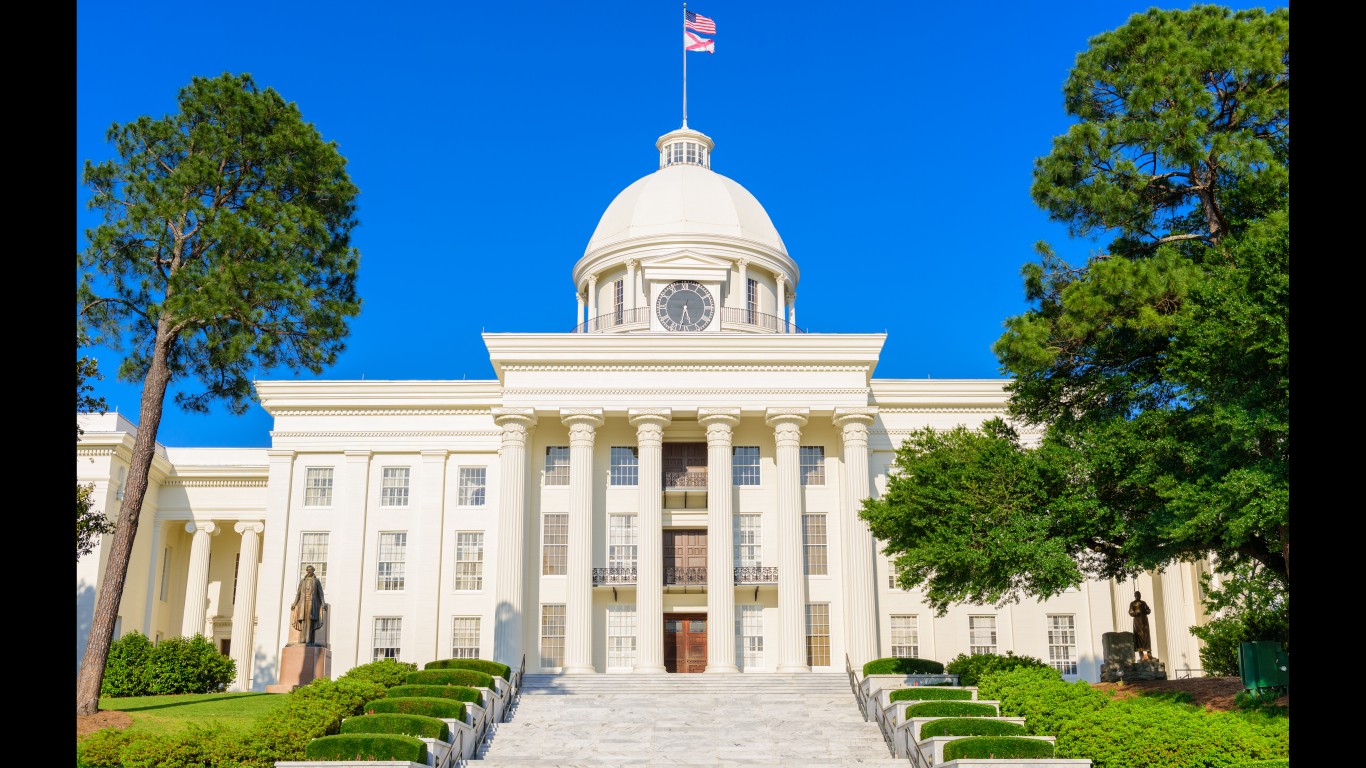
1. Alabama
> Path to abortion ban: Pre-Roe ban
> Party control of state legislature and governorship: Republican
Alabama’s legislature passed a bill in 2019 that bans all abortions with no exceptions and criminalizes doctors who perform them. Although the ban is not in effect due to a legal challenge, it would likely be implemented if Roe v. Wade were to be overturned. Alabama also has a pre-Roe ban on most abortions (except those that threaten the life of the pregnant person) which was last amended in 1951.
[in-text-ad]
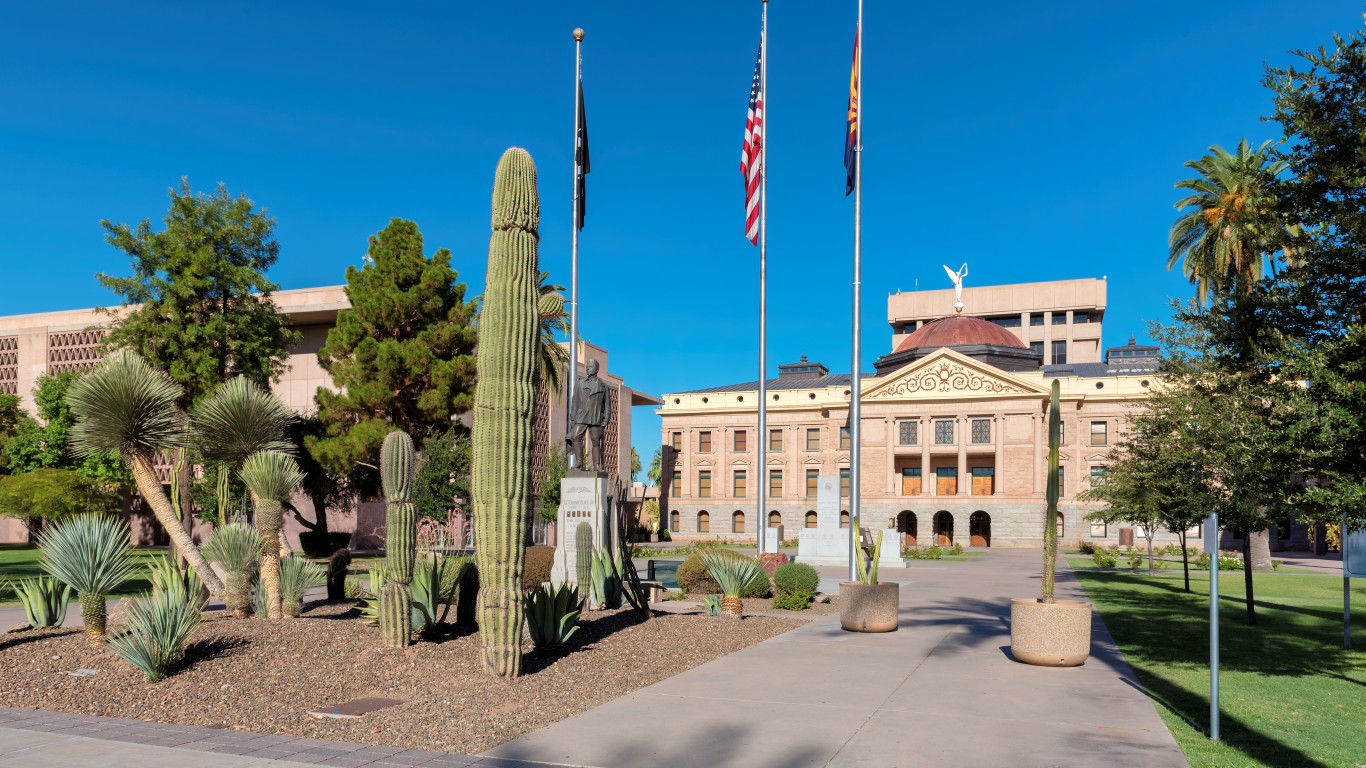
2. Arizona
> Path to abortion ban: Pre-Roe ban
> Party control of state legislature and governorship: Republican
After the recent Supreme Court draft leak, Arizona’s Gov. Doug Ducey insisted that abortions would not become totally illegal in the state if Roe is overturned. Despite pre-Roe bans dating to the mid 20th century that criminalize any person seeking an abortion – whether or not they go through with it – Ducey has stated that a 2022 law banning abortions after 15 weeks would likely take precedent.
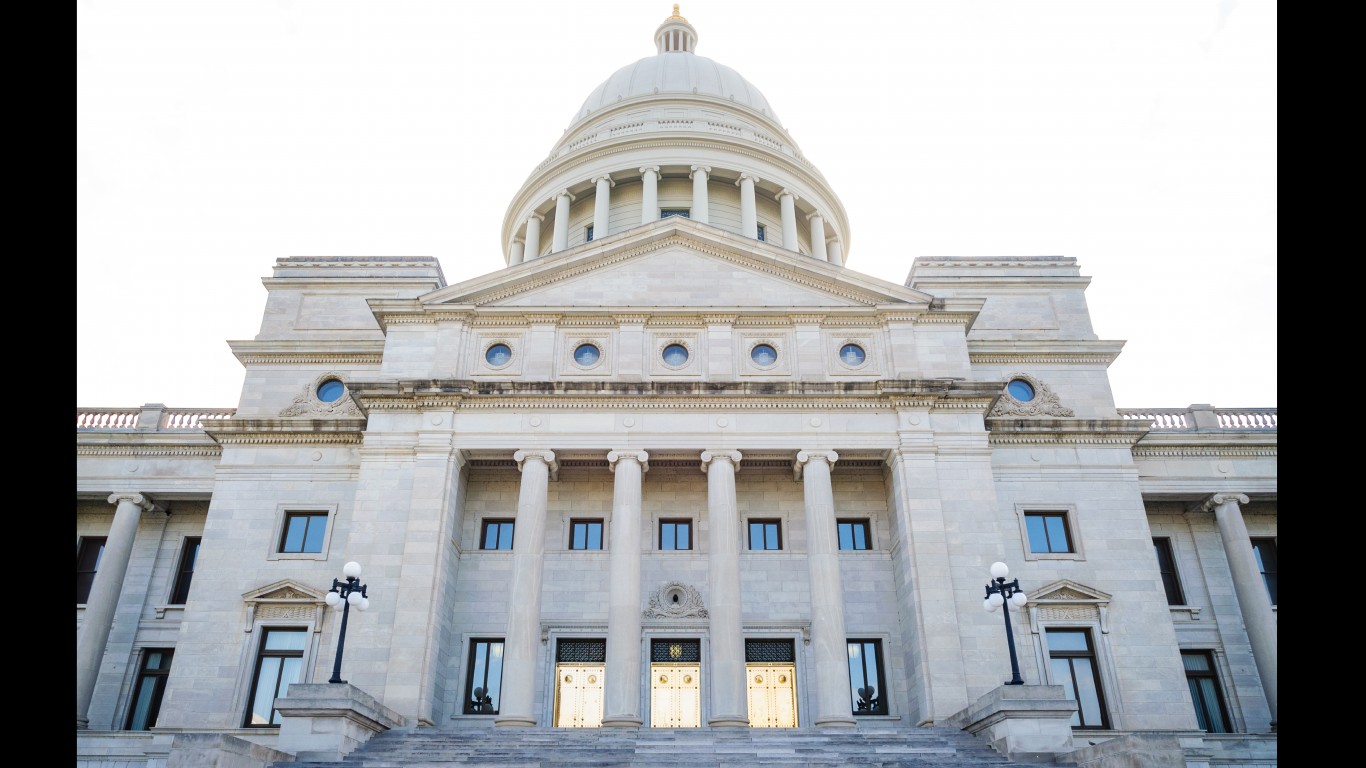
3. Arkansas
> Path to abortion ban: Trigger law in existence
> Party control of state legislature and governorship: Republican
Arkansas passed a law In 2021 banning all abortions except in cases where it will save the life of a pregnant person. The trigger law does not include provisions for pressing charges on people seeking or undergoing abortions but would allow abortion providers to be charged with a felony. Gov. Asa Hutchinson recently remarked that although he signed the law, he does not agree with its failure to provide exceptions for people pregnant as a result of sexual assaults by family members or otherwise.
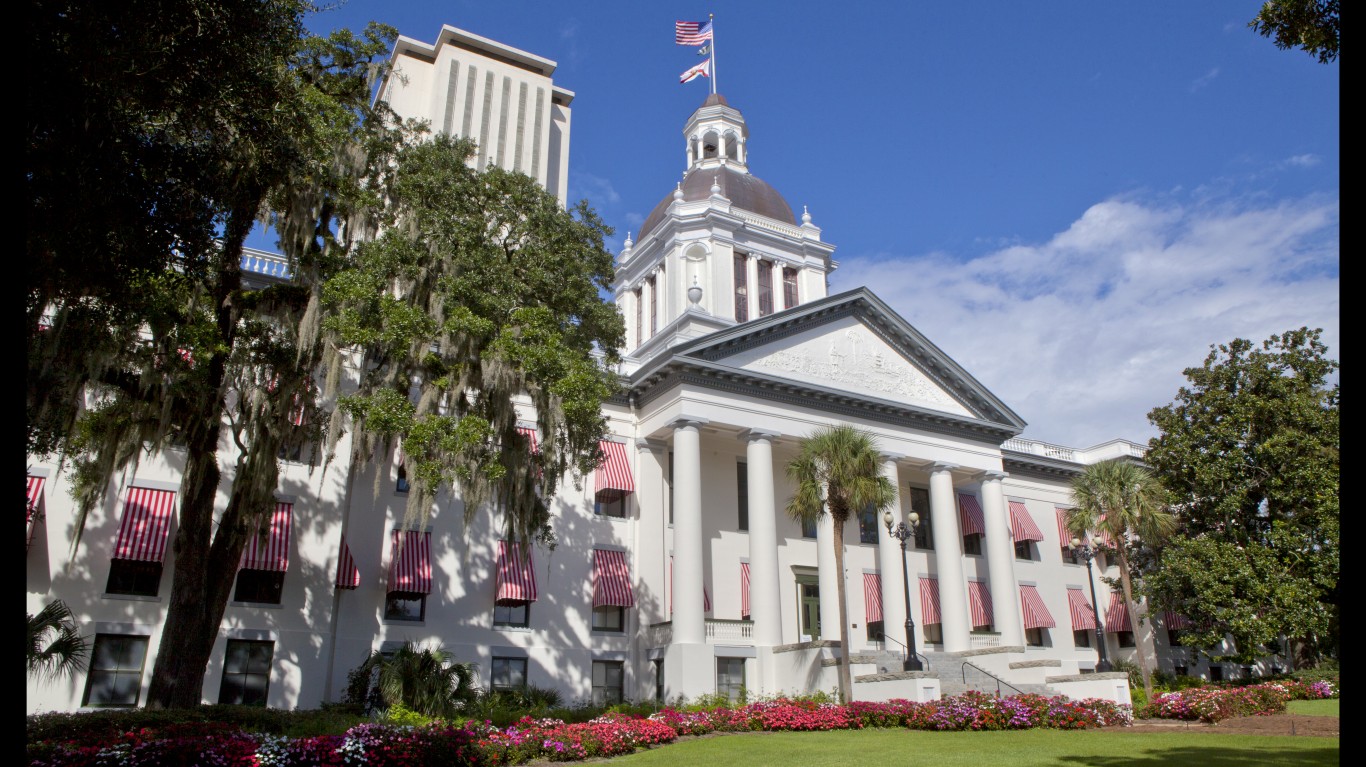
4. Florida
> Path to abortion ban: Likely to ban abortion
> Party control of state legislature and governorship: Republican
Although Florida’s Supreme Court has ruled in the past that the state’s constitution protects the right to abortion due to fundamental privacy rights, Florida recently passed a bill banning abortions after 15 weeks that is set to go into effect on July 1. It is important to note that Florida’s Supreme Court is more conservative now than in the past, and this judicial body could interpret the state’s privacy laws differently if Roe is overturned.
[in-text-ad-2]
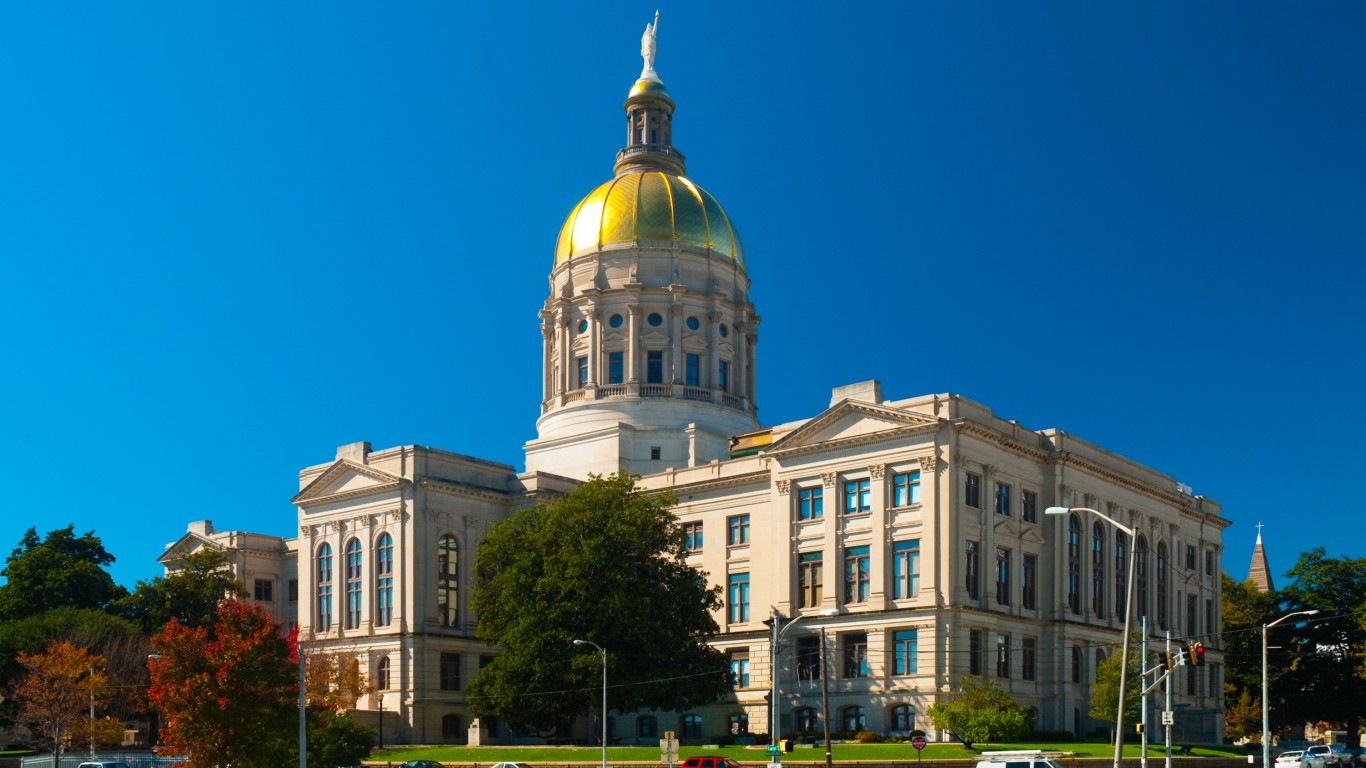
5. Georgia
> Path to abortion ban: Six-week ban in existence
> Party control of state legislature and governorship: Republican
Georgia passed a law in 2019 banning abortions as soon as embryonic cardiac activity is detectable, which is usually around six weeks – generally before many people realize that they are pregnant. Although the law was blocked by a federal judge, it would likely go into effect if the U.S. Supreme Court overturns Roe v. Wade.
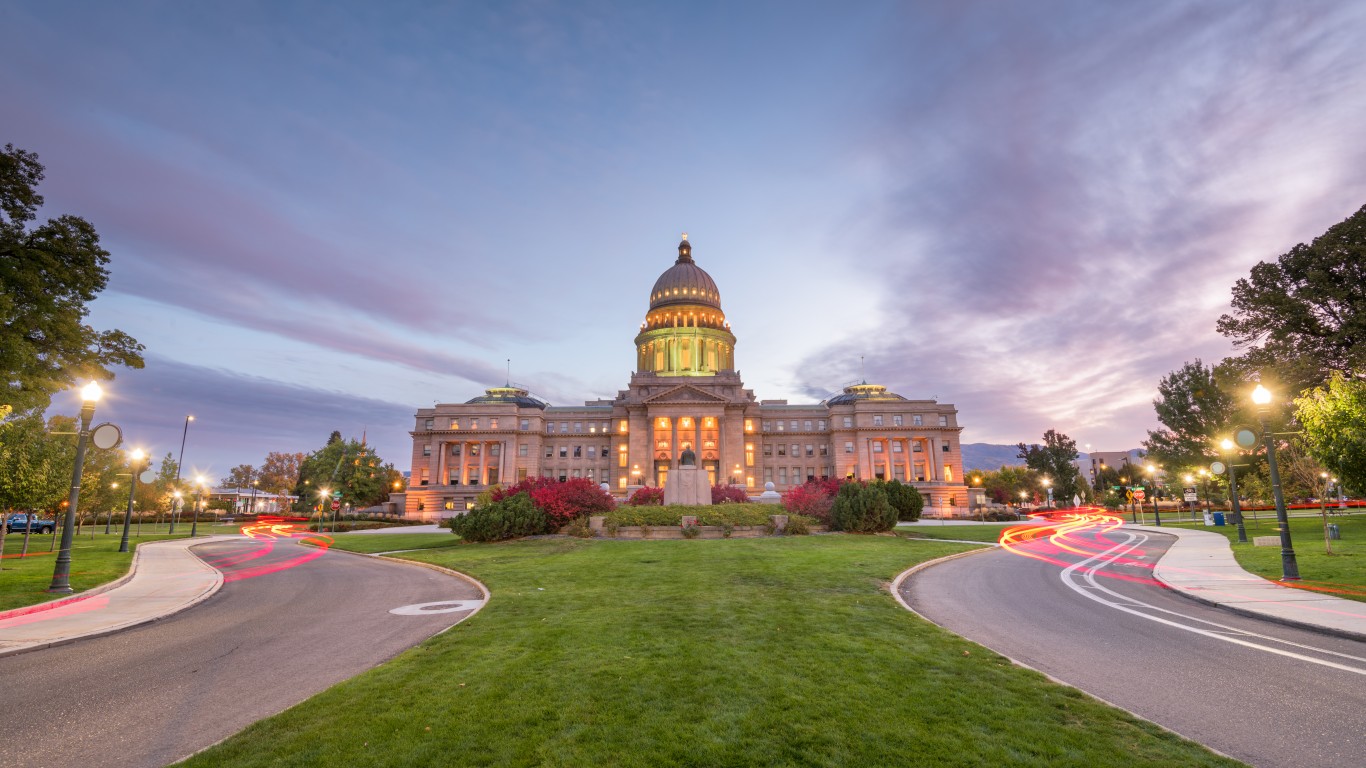
6. Idaho
> Path to abortion ban: Trigger law in existence
> Party control of state legislature and governorship: Republican
Idaho passed a law earlier this year that would ban abortions after about six weeks and allow private citizens, specifically family members of the “preborn child,” to sue abortion providers up to four years after the abortion. This includes family members of a rapist who impregnates a victim. Although the state’s Supreme Court blocked the law, which was set to go into effect on April 22, it could go into effect in the future depending on the Supreme Court’s willingness to overturn Roe.
[in-text-ad]

7. Indiana
> Path to abortion ban: Likely to ban abortion
> Party control of state legislature and governorship: Republican
In 2011 and 2018, the Indiana state legislature tried – and failed – to make abortion illegal in most cases. In 2019, a federal judge blocked a new Indiana law that prohibited the most common type of second trimester abortion, just days before the law was set to take effect. Under the blocked law, doctors who perform abortions could face felony charges and prison time.
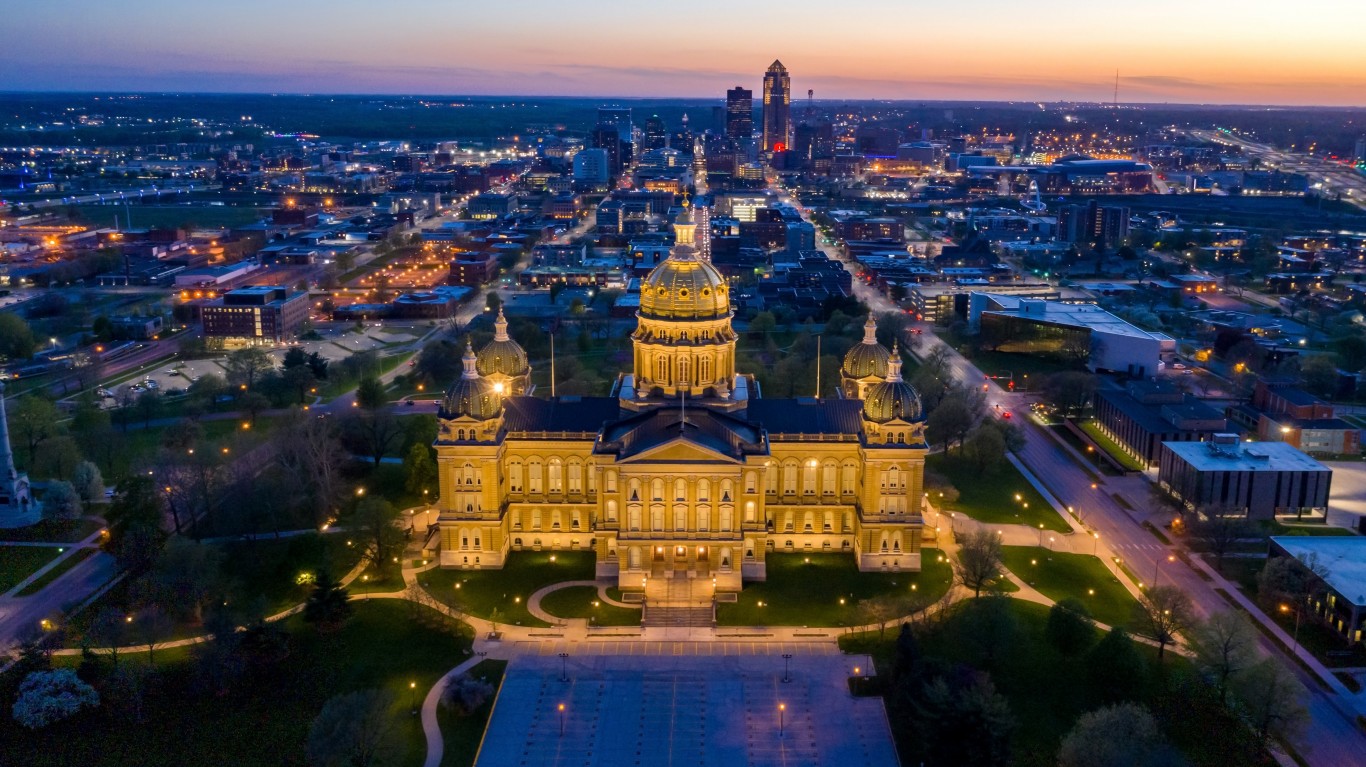
8. Iowa
> Path to abortion ban: Six-week ban in existence
> Party control of state legislature and governorship: Republican
Although Iowa’s Supreme Court has upheld the right to abortion under the state’s constitution, Iowa’s legislature has tried and failed at least seven times (every year from 2012 to 2018) to ban abortion in nearly all cases. The state successfully passed a fetal heartbeat bill in 2018, which would ban most abortions after six weeks, but the decision was blocked by a district court. Republican lawmakers in Iowa are currently working on legislation to overturn a 2018 Iowa Supreme Court decision that protects abortion.
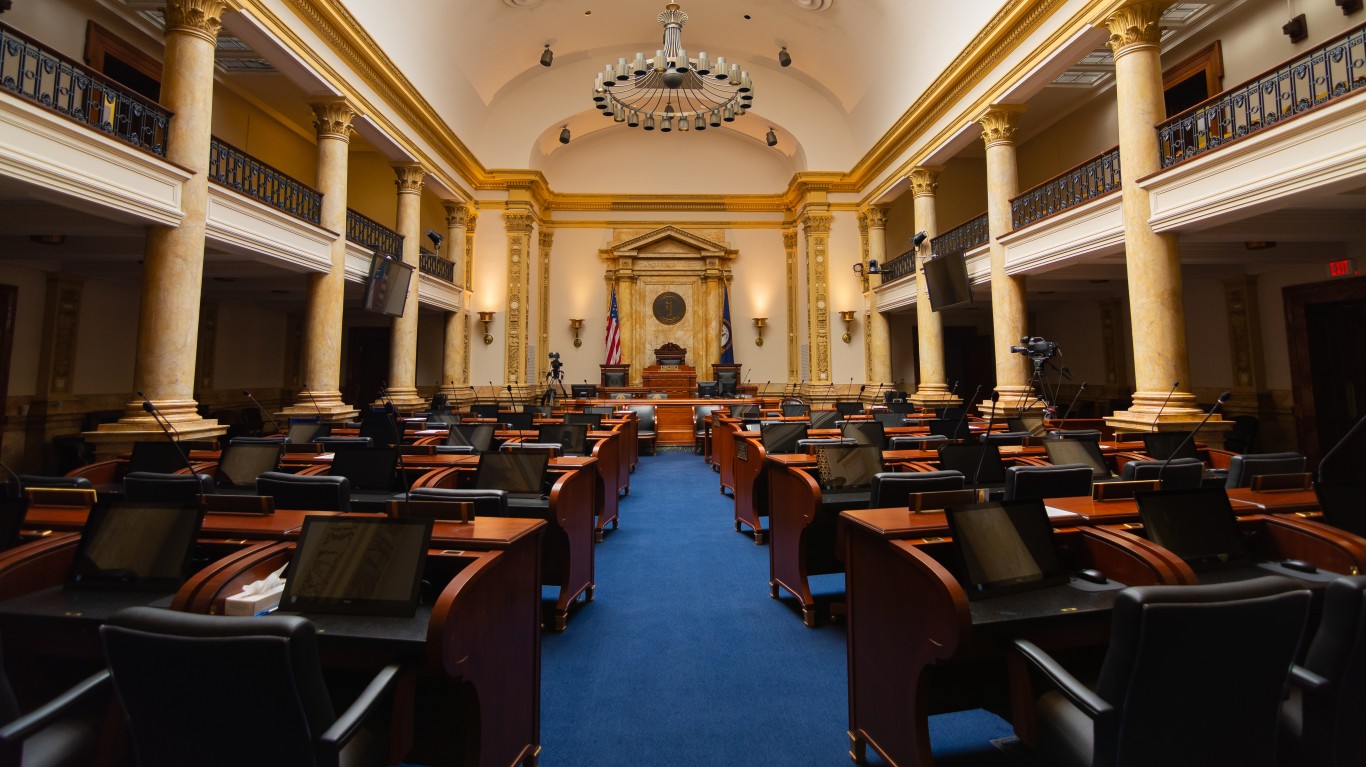
9. Kentucky
> Path to abortion ban: Trigger law in existence
> Party control of state legislature and governorship: Divided
The Kentucky legislature has tried and failed multiple times to pass a fetal heartbeat bill and to ban abortion outright and finally passed a law in 2019 that would block all access to abortion, affective immediately if Roe is overturned. The law does not provide exceptions for pregnancies resulting from sexual violence but does allow physicians to perform abortions without the threat of felony charges in cases where the patient faces a substantial death risk due to the pregnancy.
[in-text-ad-2]
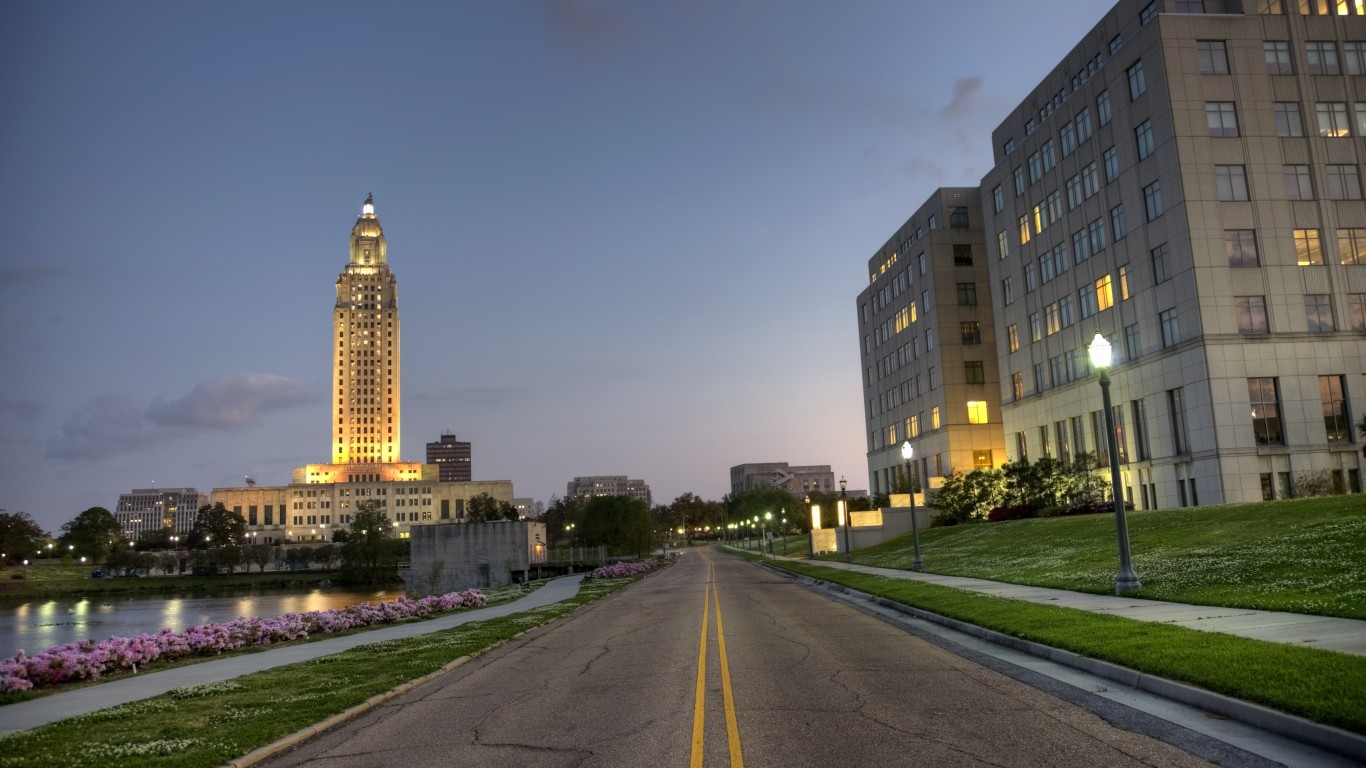
10. Louisiana
> Path to abortion ban: Trigger law in existence
> Party control of state legislature and governorship: Divided
In addition to a 2006 trigger law that would outlaw most abortions as soon as federally permissible, Louisiana also passed a six-week ban or fetal heartbeat bill in 2019, which was deemed unconstitutional by the U.S. Supreme Court. In 2020, state voters approved a constitutional amendment stating explicitly that the Louisiana constitution does not protect abortion.
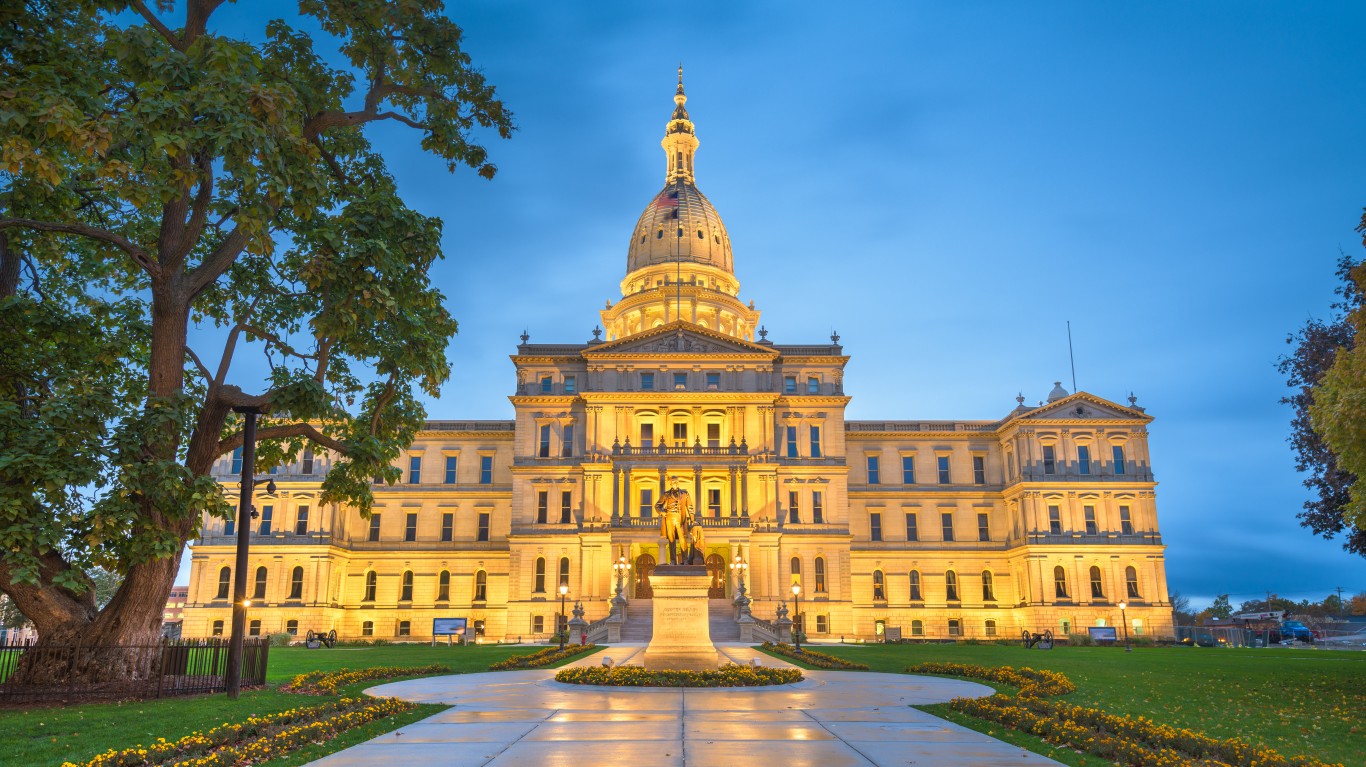
11. Michigan
> Path to abortion ban: Pre-Roe ban
> Party control of state legislature and governorship: Divided
Although Michigan has a pre-Roe ban dating back to 1931 that prohibits nearly all abortions, the state’s Democratic governor, Gretchen Whitmer, supports abortion rights and has vetoed state budget allocations that would hamper reproductive freedom. Whitmer recently filed a lawsuit asking Michigan’s Supreme Court to determine whether the state constitution protects the right to abortion. Meanwhile, anti-abortion activists are pressuring the Court of Appeals to overturn an injunction on the 1931 law.
[in-text-ad]
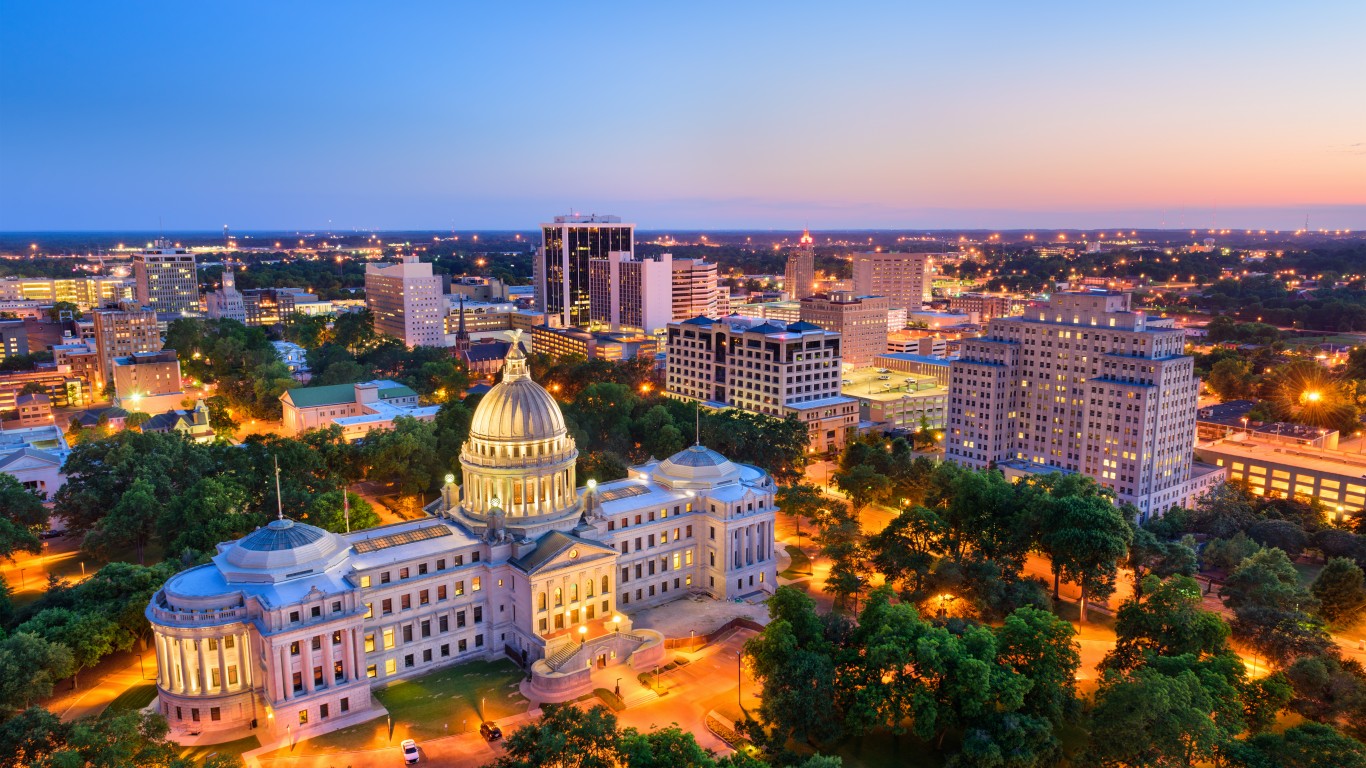
12. Mississippi
> Path to abortion ban: Trigger law in existence
> Party control of state legislature and governorship: Republican
Mississippi has a pre-Roe ban, a six-week ban, and a trigger law – each of which could be enforced and used to prohibit nearly all abortions in the state. In 2018, Mississippi passed a ban on most abortions after 15 weeks (the Gestational Age Act) but it was struck down in a district court. Mississippi’s legislature tried multiple times to pass a fetal heartbeat bill before finally succeeding in 2019.
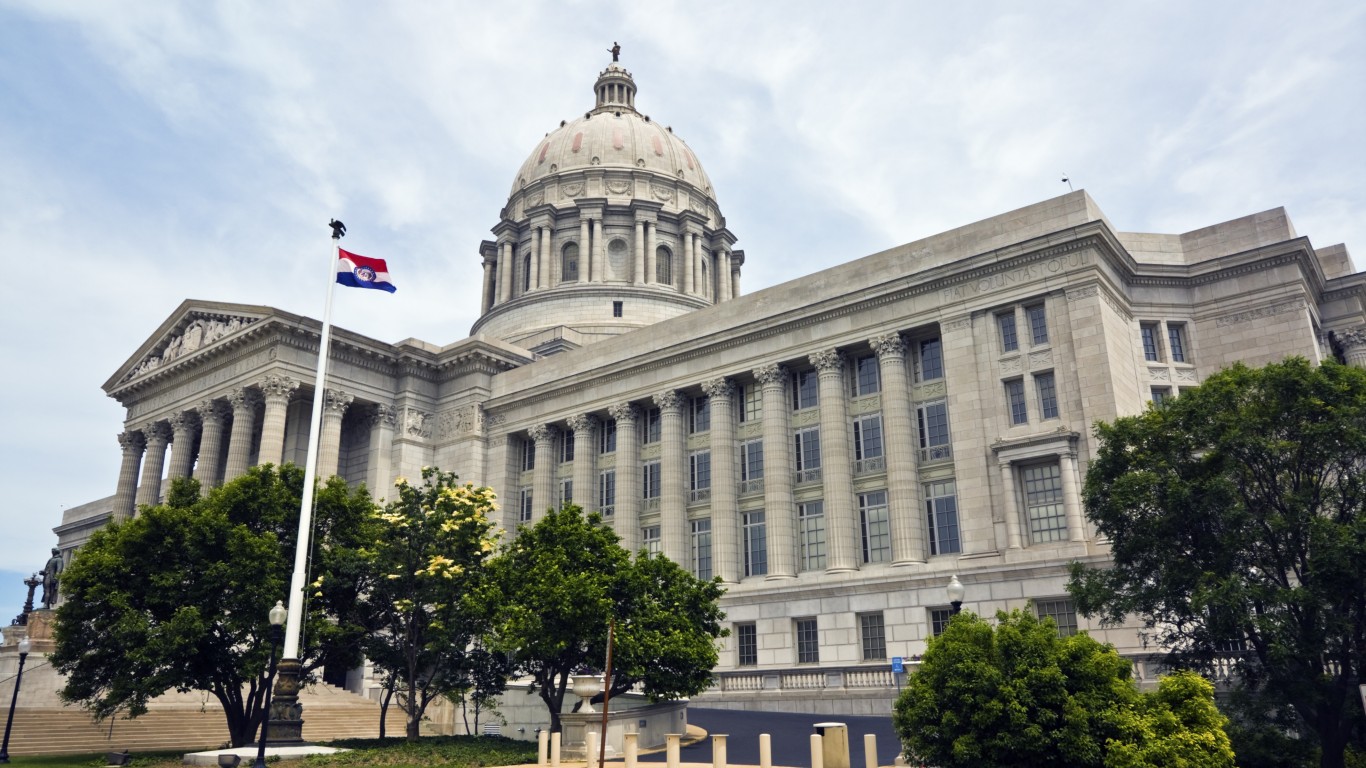
13. Missouri
> Path to abortion ban: Trigger law in existence
> Party control of state legislature and governorship: Republican
Missouri has had laws on the books banning abortion since 1825. Abortion only became legal in the state after the Roe v. Wade decision in 1973, and many state legislators have vehemently opposed it since then. In 2019, Missouri passed a trigger law that would ban nearly all abortions if Roe is overturned. The law only includes an exception for medical emergencies to save the life of the pregnant person.
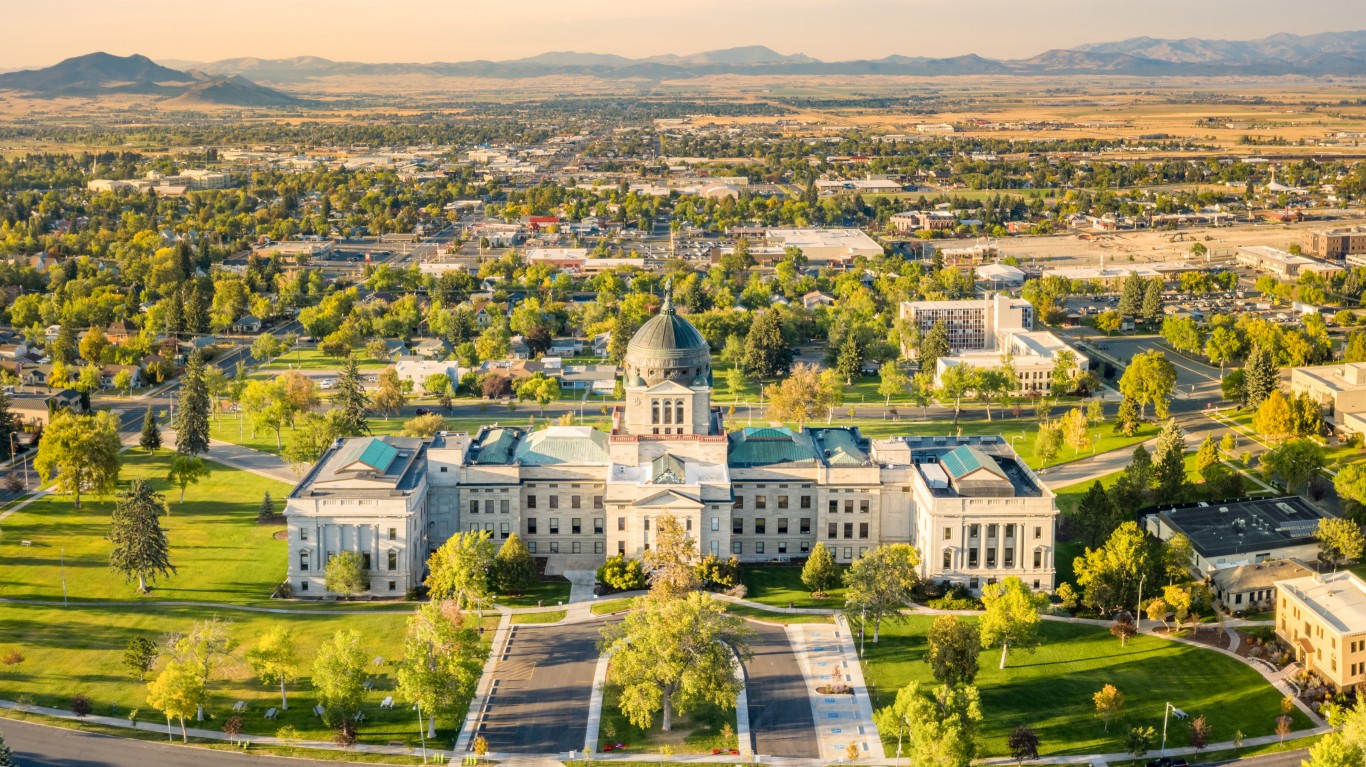
14. Montana
> Path to abortion ban: Likely to ban abortion
> Party control of state legislature and governorship: Republican
Although a 1999 Montana Supreme Court decision upheld the right to abortion in the state due to constitutional privacy laws, Montana is still likely to outlaw or restrict abortion. In 2021, a number of new abortion restrictions passed in the state legislature, including a 20-week ban and a restriction on medication abortions, but they were struck down in a district court just hours before they were to go into effect.
[in-text-ad-2]
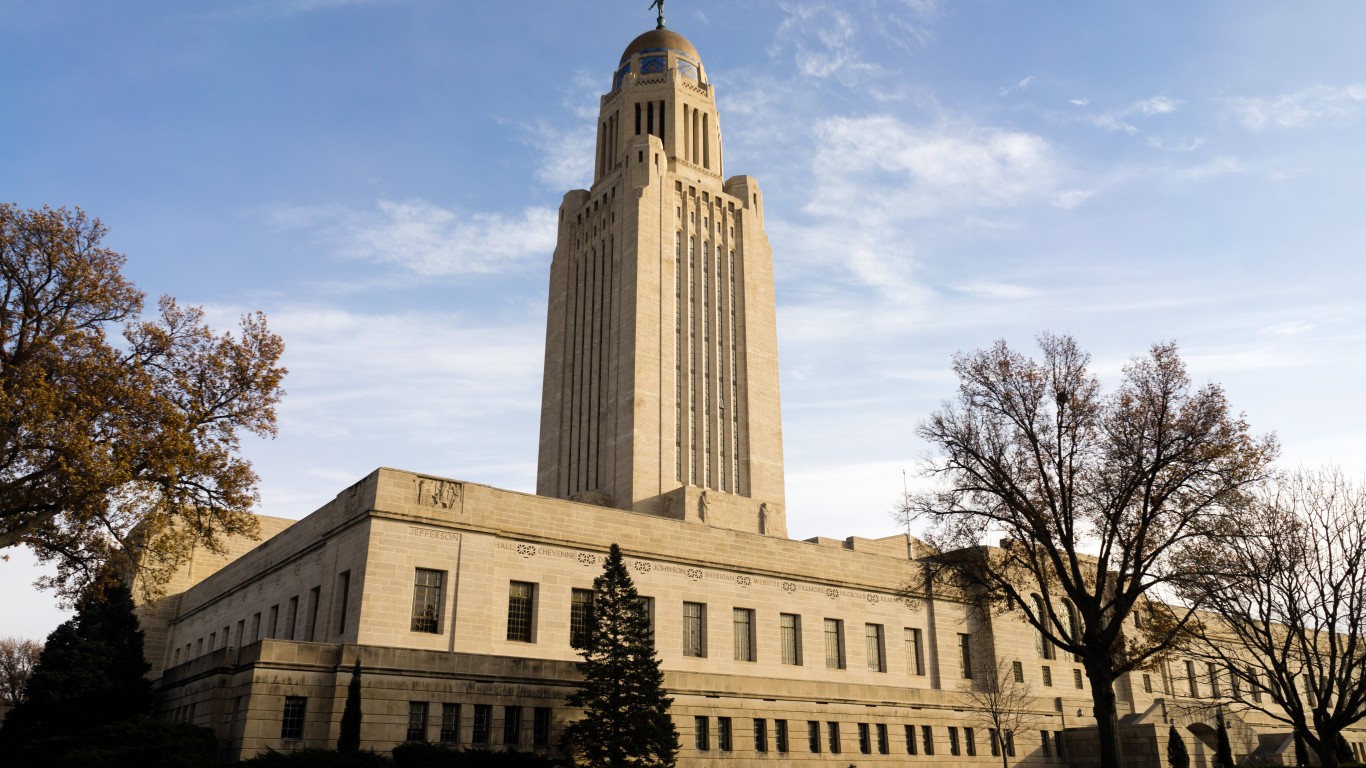
15. Nebraska
> Path to abortion ban: Likely to ban abortion
> Party control of state legislature and governorship: N/A
Nebraska became the first state to adopt a 20-week ban in 2010 (which has since changed to 22 weeks). In 2021, two Nebraska towns outlawed abortion by local ordinance and were praised by the state’s Republican Gov. Pete Ricketts, who called Nebraska a “pro-life state.” Although no trigger law is currently in place, it is likely that Nebraska will move to ban abortion if Roe is overturned.
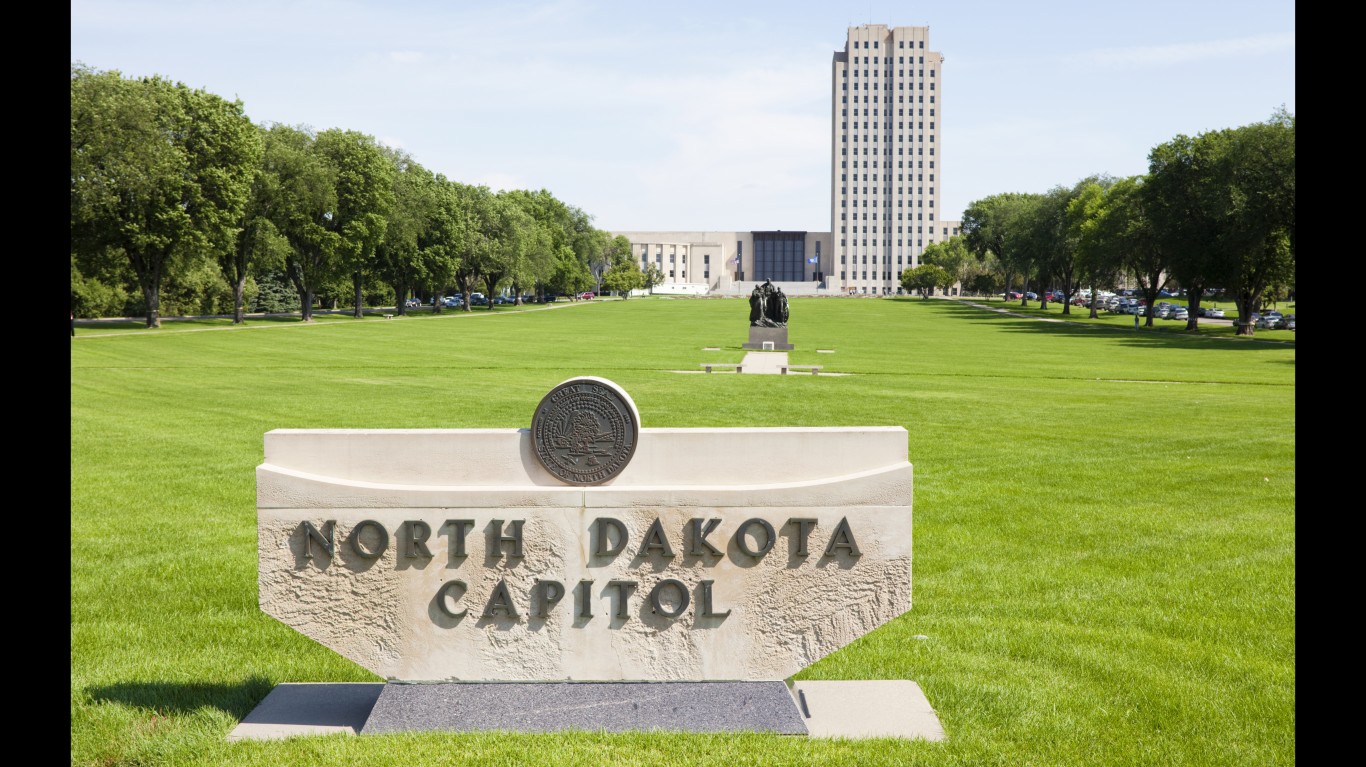
16. North Dakota
> Path to abortion ban: Trigger law in existence
> Party control of state legislature and governorship: Republican
Before the 1973 Roe v. Wade decision, seeking or having an abortion were both criminal offenses in North Dakota, and there were no abortion clinics in the state. With a six-week ban in place since 2013 (which was blocked in court), and a trigger law in place since 2018, North Dakota is poised to immediately ban abortion if the Supreme Court allows it. There is currently only one abortion clinic in the state.
[in-text-ad]
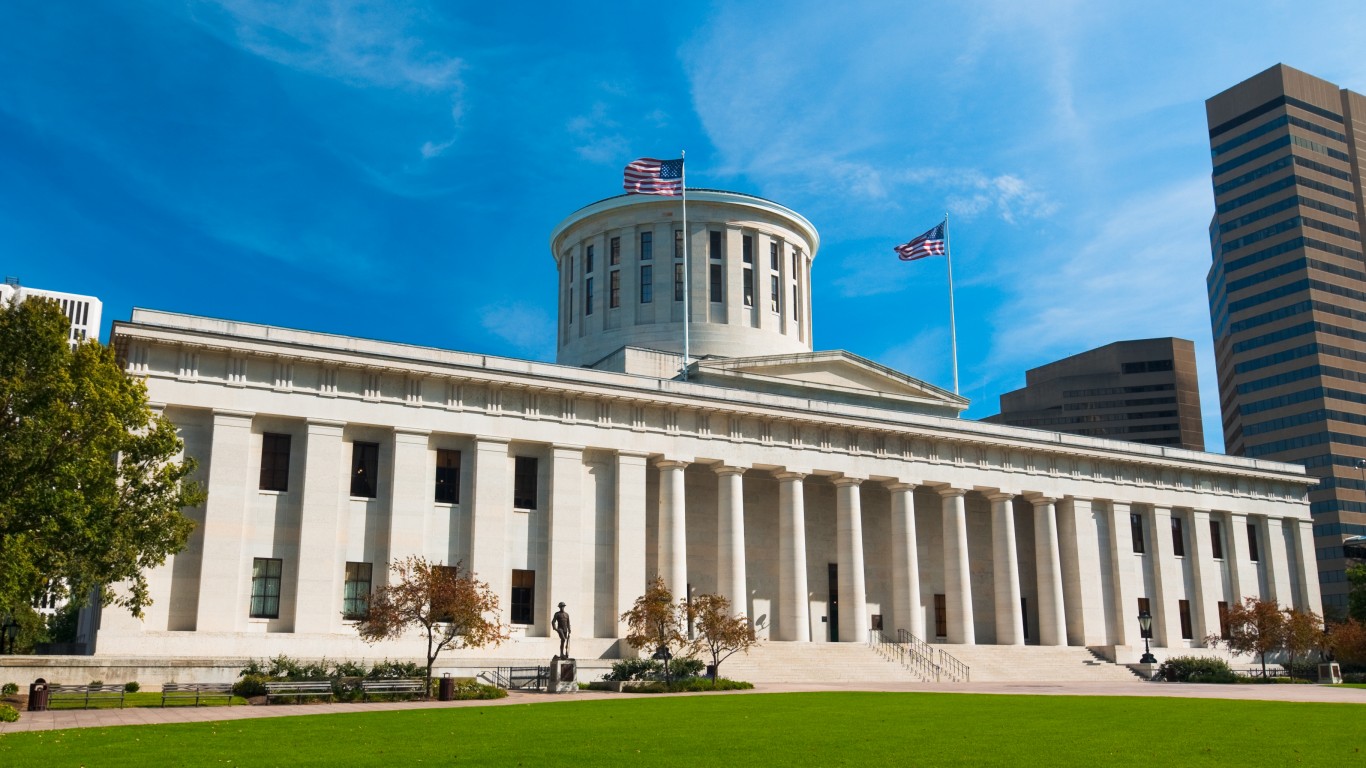
17. Ohio
> Path to abortion ban: Six-week ban in existence
> Party control of state legislature and governorship: Republican
Although abortion is legal until 22 weeks in Ohio, a 2019 six-week ban is poised to go into effect if Roe is overturned. The state’s heartbeat bill allows for providers who perform abortions after six weeks to be prosecuted. A bill is currently in consideration in Ohio’s legislature that would allow private citizens to sue abortion providers and others who aid someone in obtaining an abortion. A trigger law, House Bill 598, is also being deliberated, but will not go to vote until the U.S. Supreme Court releases their opinion.
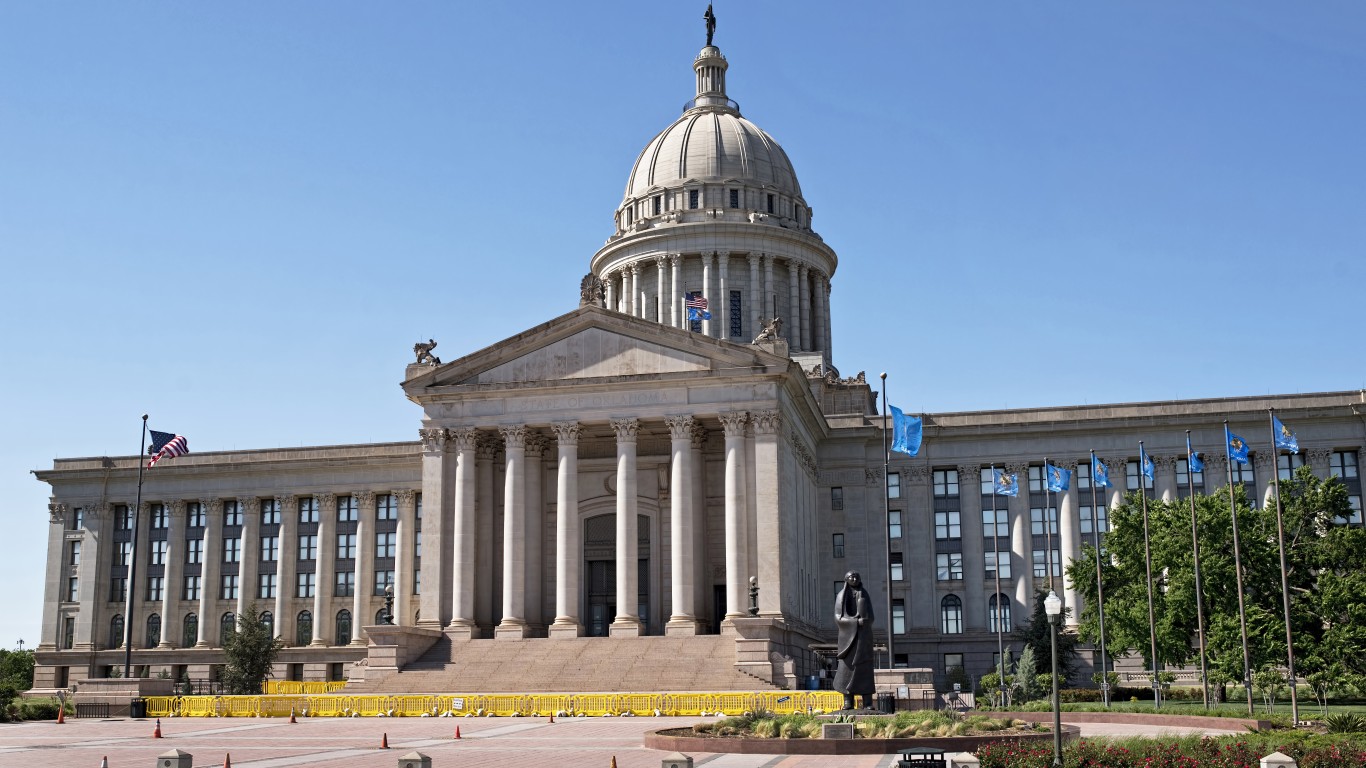
18. Oklahoma
> Path to abortion ban: Trigger law in existence
> Party control of state legislature and governorship: Republican
On May 25, 2022, Oklahoma enacted the strictest abortion law in the country. The law allows for abortions only in medical emergencies to save the life of the pregnant person, and before six weeks in cases of sexual assault – by a family member or otherwise – that have been reported to the police. Otherwise, abortion is illegal from the time of conception. Modeled after the Texas Heartbeat Act, Oklahoma’s law allows private citizens to sue abortion providers and helpers. Oklahoma also has a trigger law on the books.
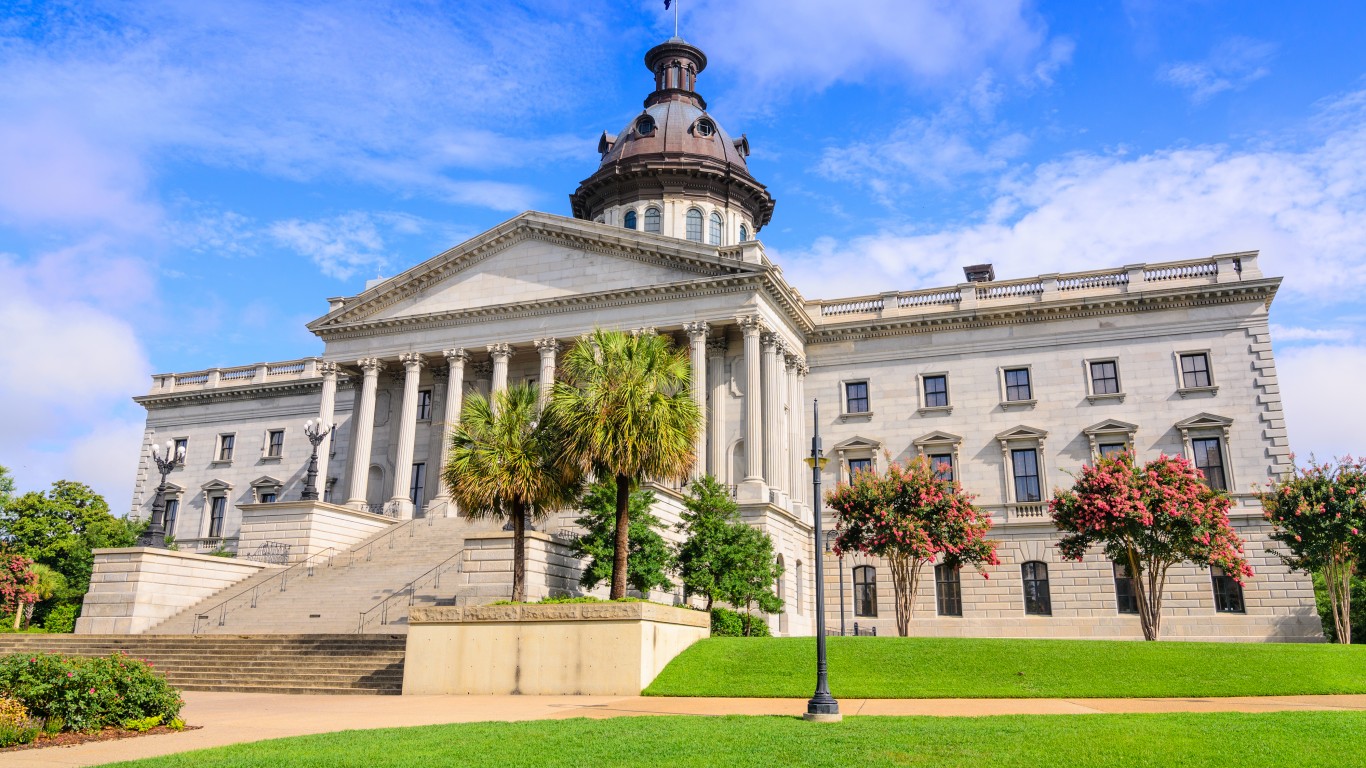
19. South Carolina
> Path to abortion ban: Six-week ban in existence
> Party control of state legislature and governorship: Republican
South Carolina passed a fetal heartbeat ban in 2021. The ban was blocked by a federal judge but could be enacted if the U.S. Supreme Court decides to overturn Roe v. Wade. Current South Carolina laws restrict the administration of abortion solely to physicians – explicitly prohibiting nurse midwives from providing abortion services – and exclude the use of telemedicine when providing abortion care. Providers who violate these rules can be prosecuted.
[in-text-ad-2]
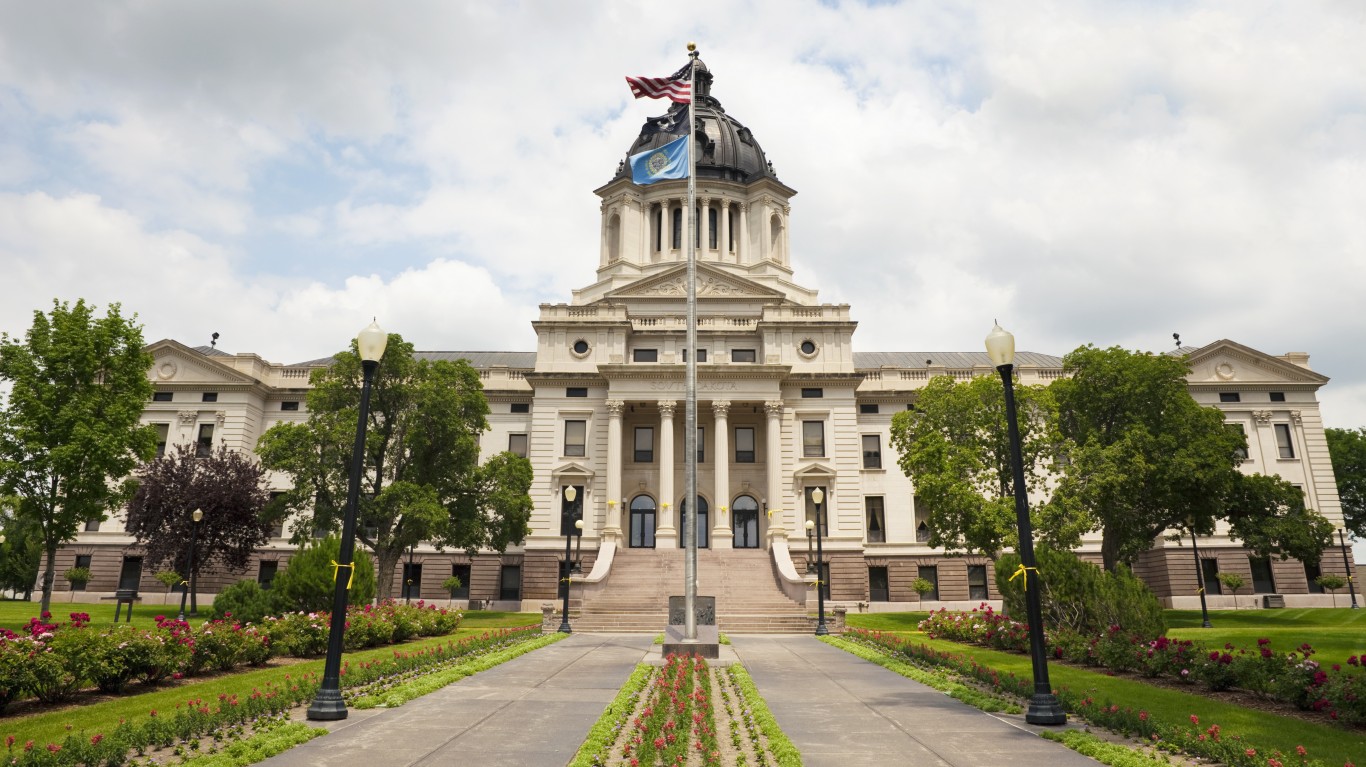
20. South Dakota
> Path to abortion ban: Trigger law in existence
> Party control of state legislature and governorship: Republican
South Dakota has a trigger law in place dating back to 2005. In 2006, the state’s legislature passed a law that would make it a felony to provide abortion services except to save the life of the pregnant person. Planned Parenthood challenged the law and secured an injunction. A more lenient law, which passed in 2008, banned abortion except in cases of sexual violence or threat to the health of the pregnant person. It was again successfully challenged by Planned Parenthood.

21. Tennessee
> Path to abortion ban: Trigger law in existence
> Party control of state legislature and governorship: Republican
Tennessee’s trigger law dates back to 2019, when a Republican supermajority ushered the bill through the state’s legislature. The law would make it a felony to perform an abortion. Although a Tennessee Supreme Court ruling in 2000 stated that abortions are protected by the state’s constitutional rights to privacy, an amendment passed in 2014 makes explicit that the right to abortion is not guaranteed in Tennessee’s constitution.
[in-text-ad]
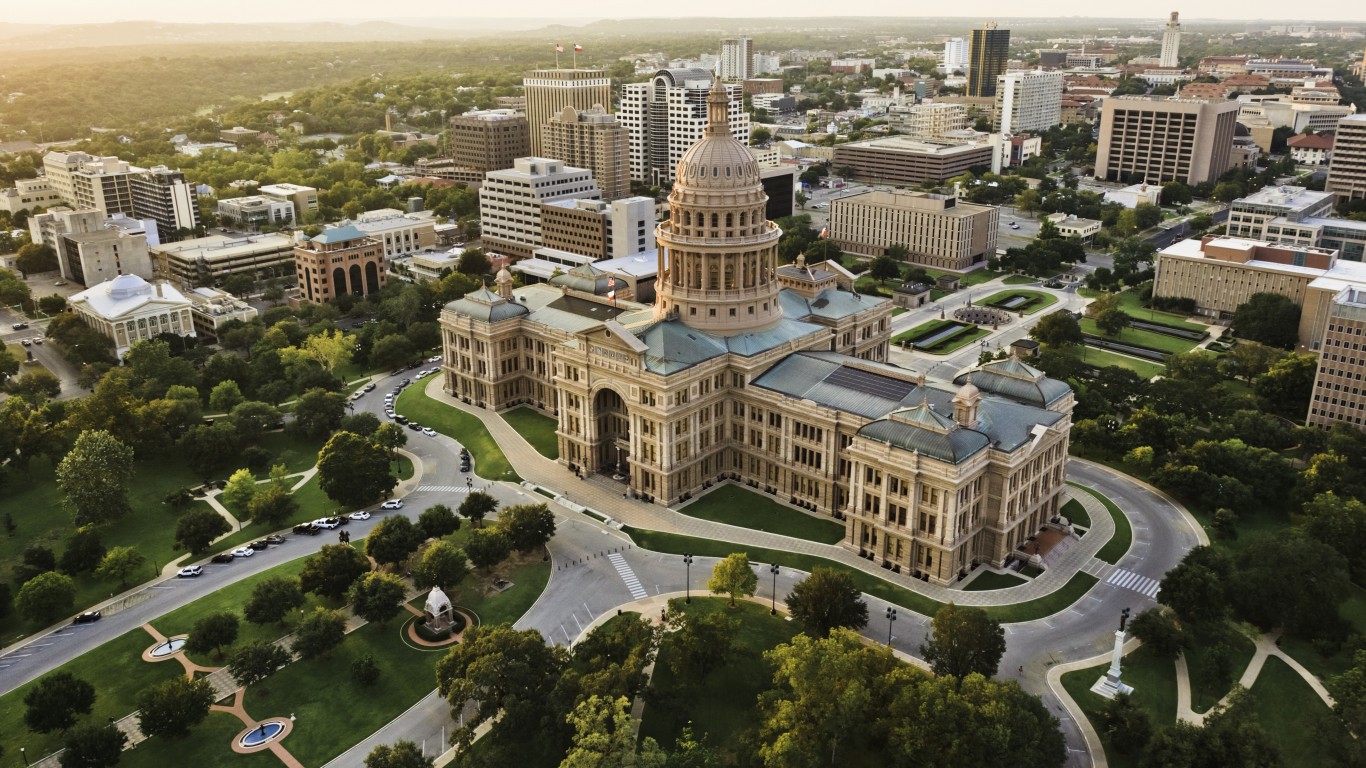
22. Texas
> Path to abortion ban: Trigger law in existence
> Party control of state legislature and governorship: Republican
On Sept. 1, 2021, the Texas Heartbeat Act went into effect, making abortion illegal after around six weeks except in the case of medical emergencies. There is no provision for pregnancies caused by sexual assaults – even by family members – and private citizens may sue abortion providers and those who help someone obtain an abortion. On a local level, 30 Texas cities have banned abortion. In addition, Texas has pre-Roe bans on the books as well as a trigger law in place since 2021.
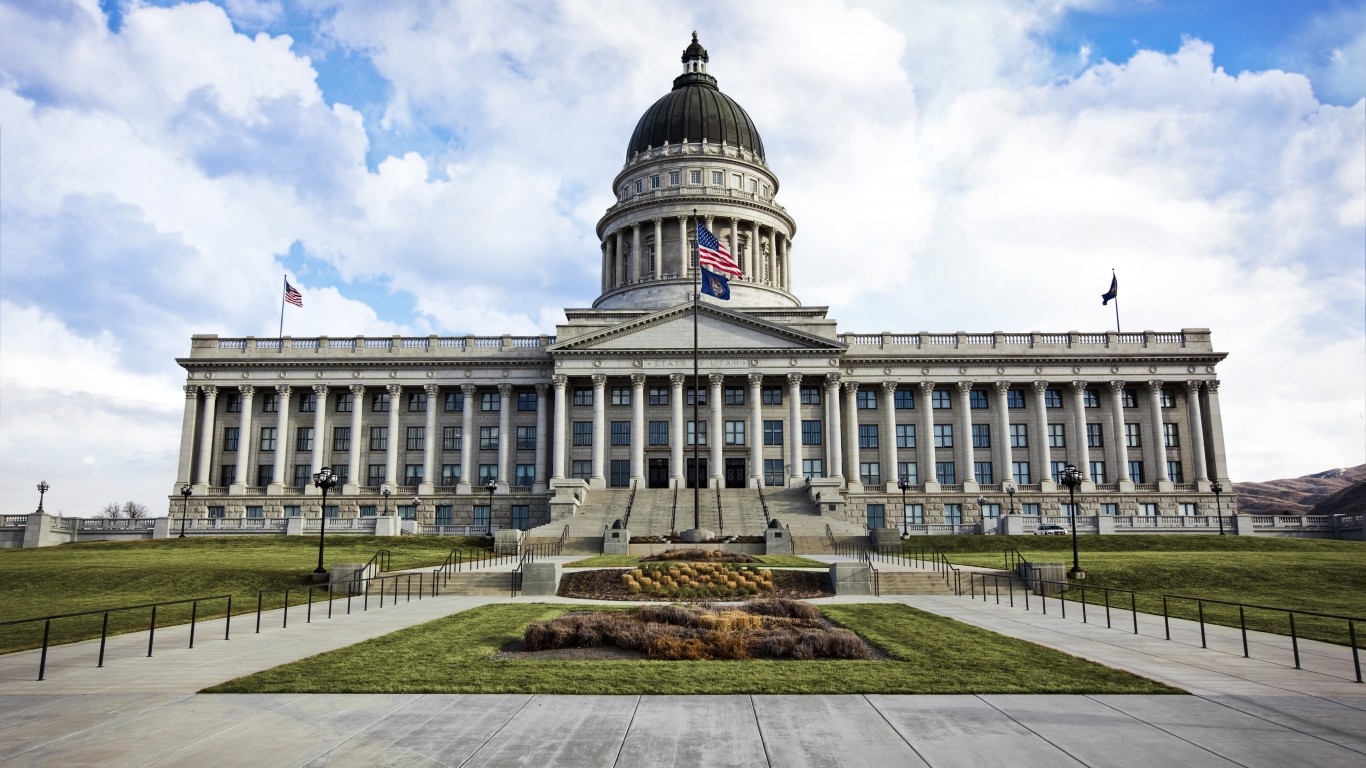
23. Utah
> Path to abortion ban: Trigger law in existence
> Party control of state legislature and governorship: Republican
With a trigger law dating back to 2020 that bans nearly all abortions (with a few exceptions for pregnancies resulting from sexual violence, or if the health of the pregnant person is at risk) Utah is poised to effectively outlaw abortion if Roe is overturned. In the case of a narrower ruling from the U.S. Supreme Court, Utah also has an 18-week ban on the books that could take effect.
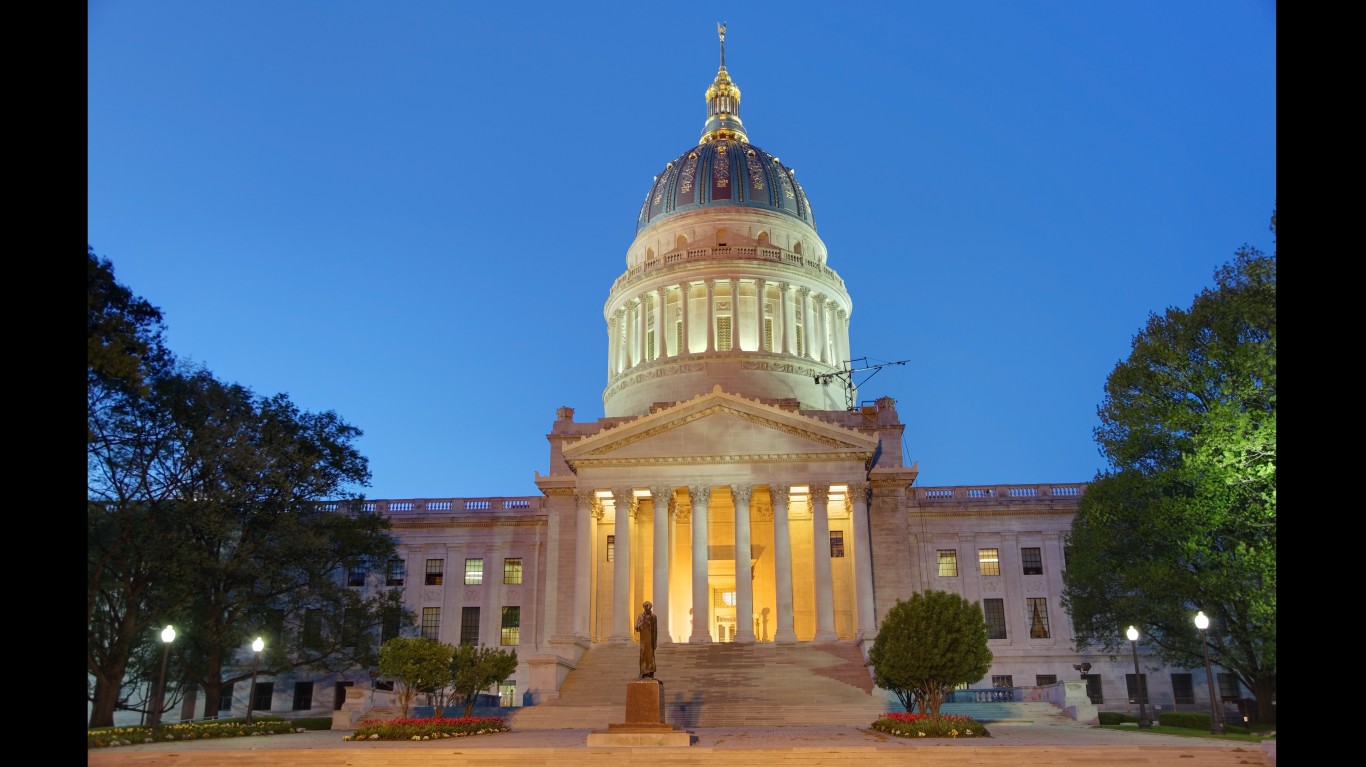
24. West Virginia
> Path to abortion ban: Pre-Roe ban
> Party control of state legislature and governorship: Republican
West Virginia has a pre-Roe ban dating back to 1848, when the state was still a part of Virginia. The law declares that it is a felony to provide an abortion unless it is to save the life of the pregnant person. In 2018, West Virginia voters narrowly approved a constitutional amendment stating that the constitution does not protect the right to abortion or require abortions to be funded.
[in-text-ad-2]
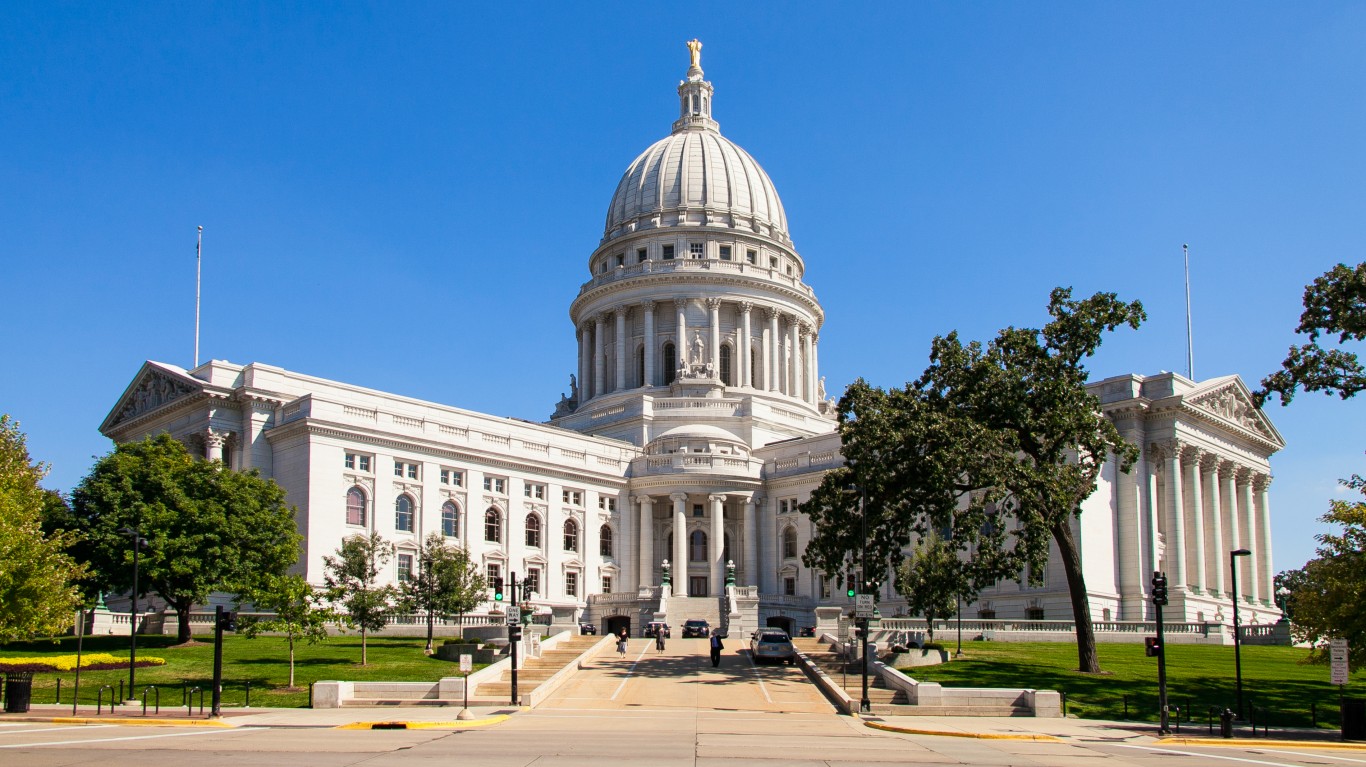
25. Wisconsin
> Path to abortion ban: Pre-Roe ban
> Party control of state legislature and governorship: Divided
Wisconsin’s Democratic Gov. Tony Evers vetoed five anti-abortion bills in 2021. Evers promised to continue to stand for reproductive rights in the state. After the recent draft opinion leak from the U.S. Supreme Court, Evers led a group of 17 governors who called on Congress to pass legislation federally guaranteeing the right to abortion. Although he is up for reelection this year, a potential loss could spell the end of reproductive rights in the state.

26. Wyoming
> Path to abortion ban: Trigger law in existence
> Party control of state legislature and governorship: Republican
Abortion was illegal in Wyoming after 1950, but in 1977, the state repealed its pre-Roe ban. Wyoming’s legislature recently passed a trigger bill that outlaws most abortions except in cases of sexual violence or danger to the pregnant person’s life. If Roe v. Wade is overturned, the law would take effect five days later.
Take This Retirement Quiz To Get Matched With An Advisor Now (Sponsored)
Are you ready for retirement? Planning for retirement can be overwhelming, that’s why it could be a good idea to speak to a fiduciary financial advisor about your goals today.
Start by taking this retirement quiz right here from SmartAsset that will match you with up to 3 financial advisors that serve your area and beyond in 5 minutes. Smart Asset is now matching over 50,000 people a month.
Click here now to get started.
Thank you for reading! Have some feedback for us?
Contact the 24/7 Wall St. editorial team.

